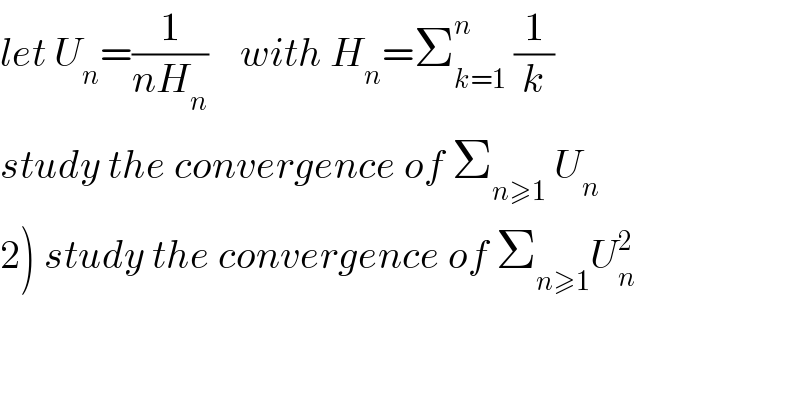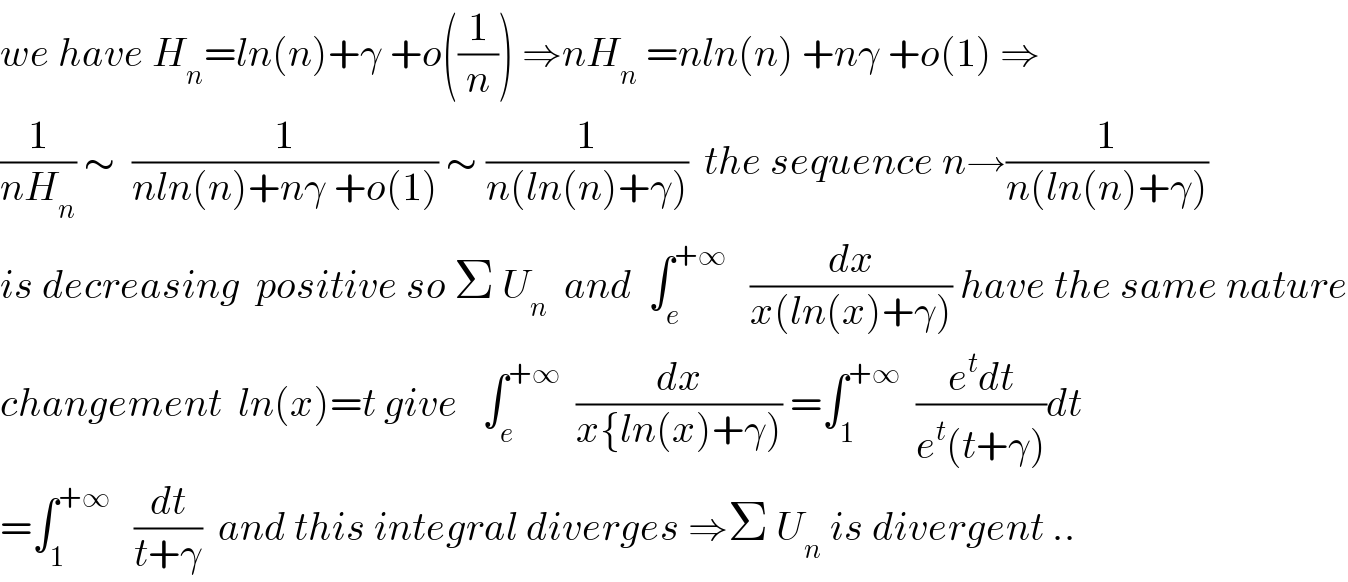
Question and Answers Forum
Previous in Relation and Functions Next in Relation and Functions
Question Number 53778 by maxmathsup by imad last updated on 25/Jan/19

Commented by maxmathsup by imad last updated on 18/Feb/19

| ||
Question and Answers Forum | ||
Previous in Relation and Functions Next in Relation and Functions | ||
Question Number 53778 by maxmathsup by imad last updated on 25/Jan/19 | ||
 | ||
Commented by maxmathsup by imad last updated on 18/Feb/19 | ||
 | ||